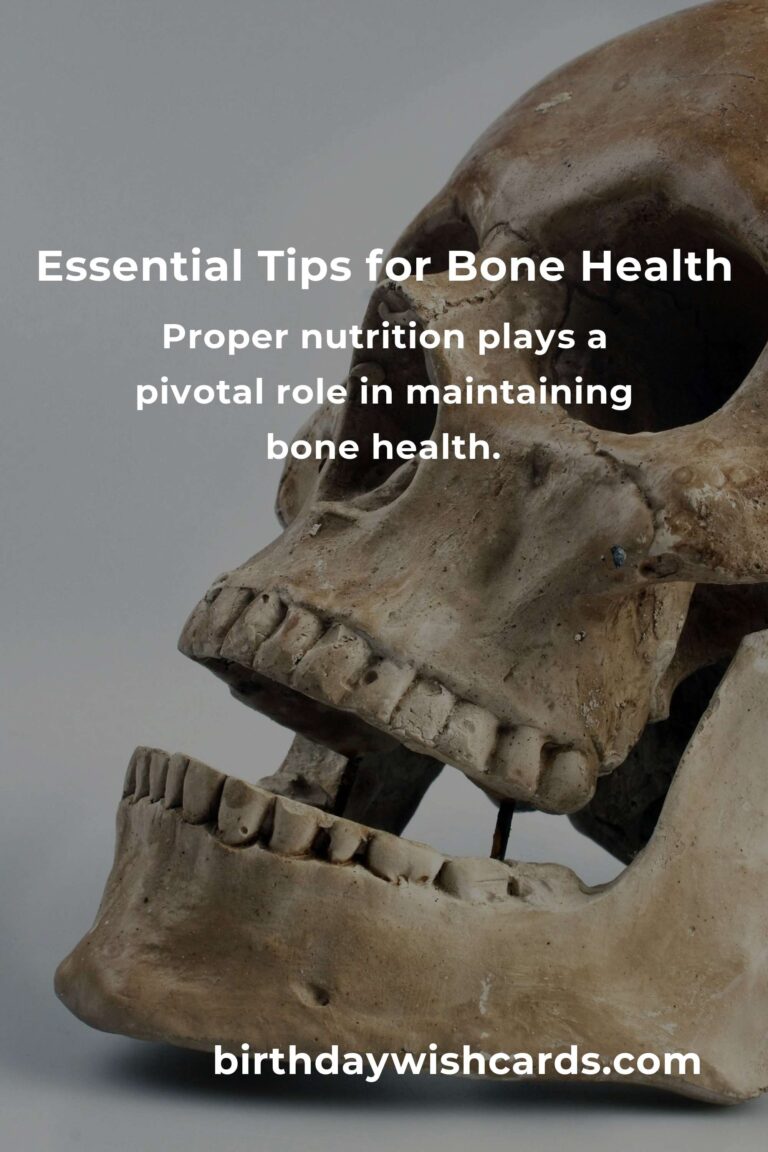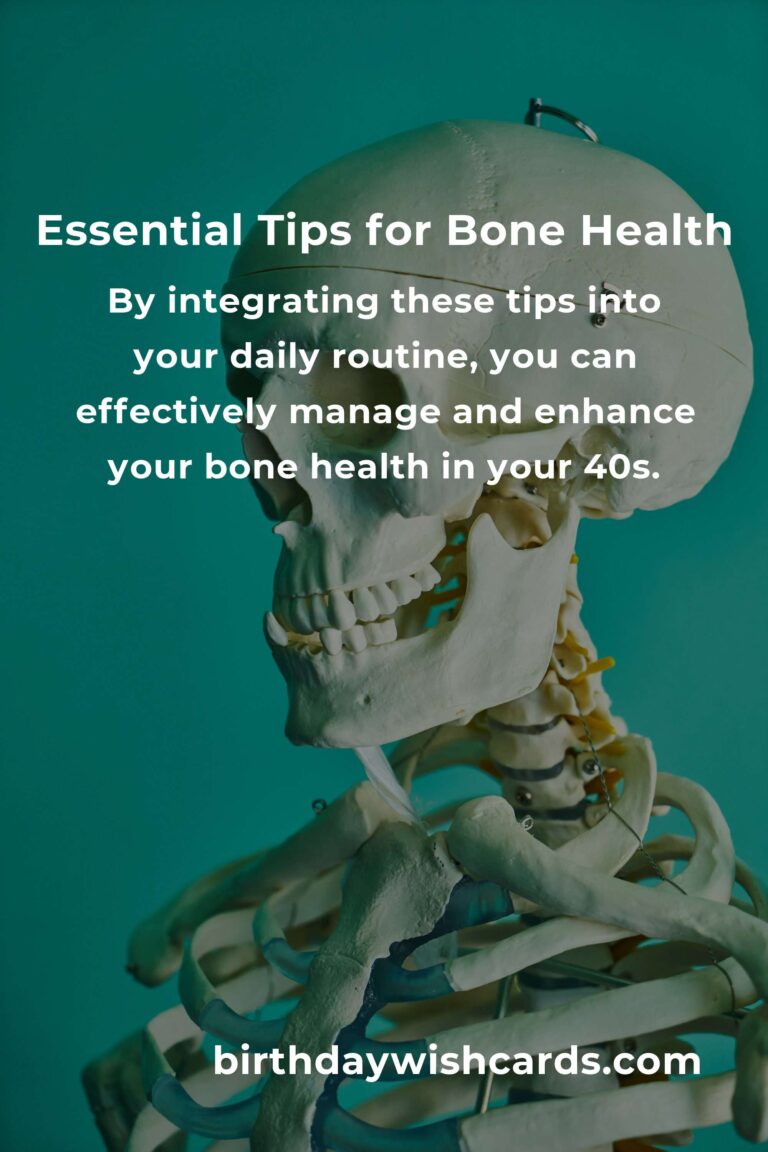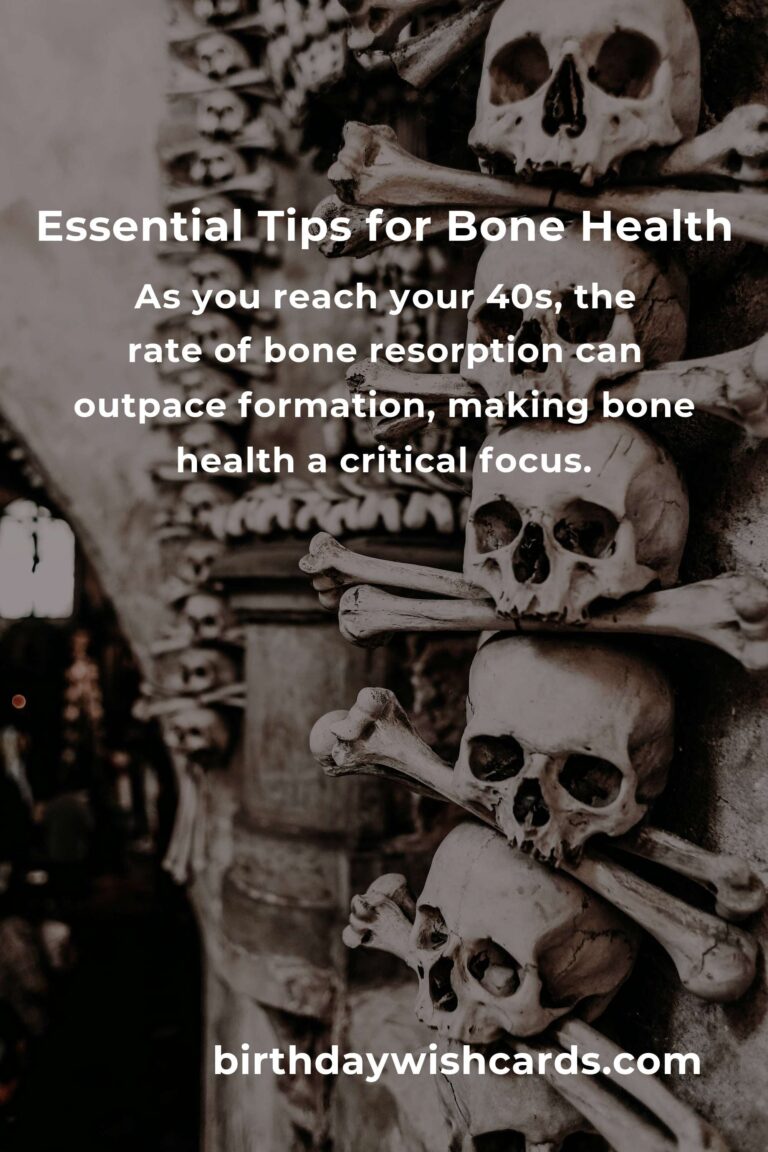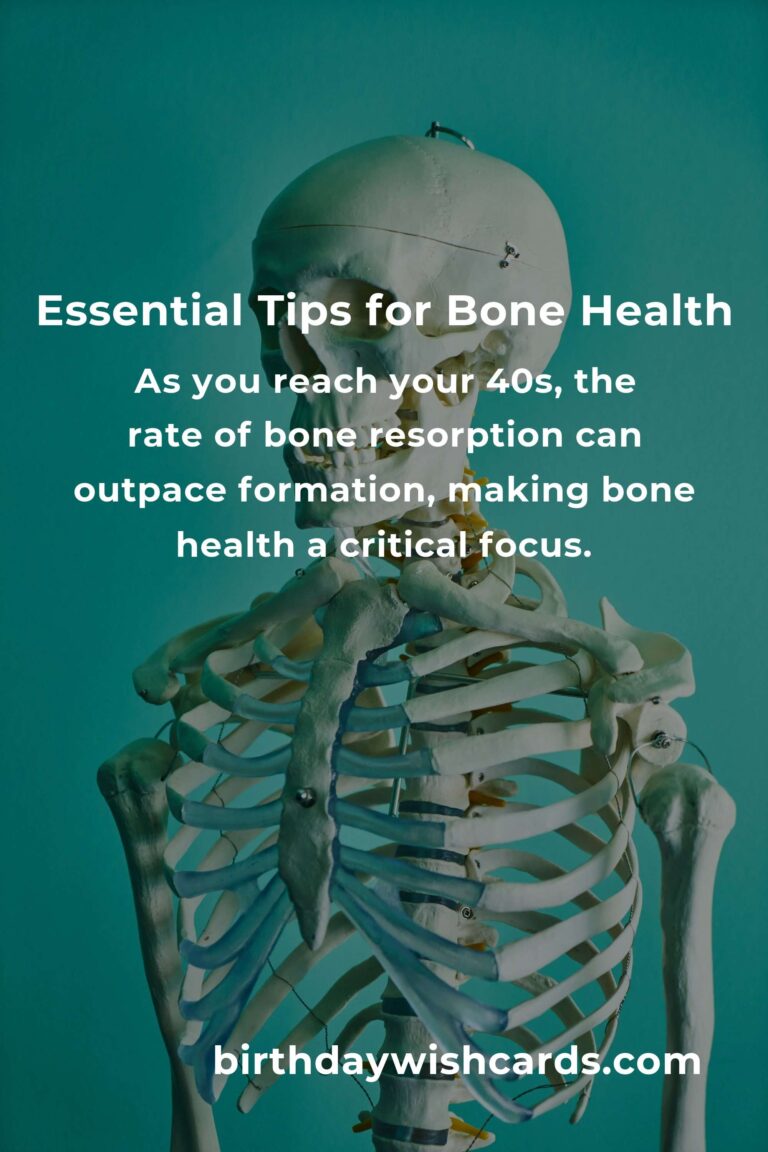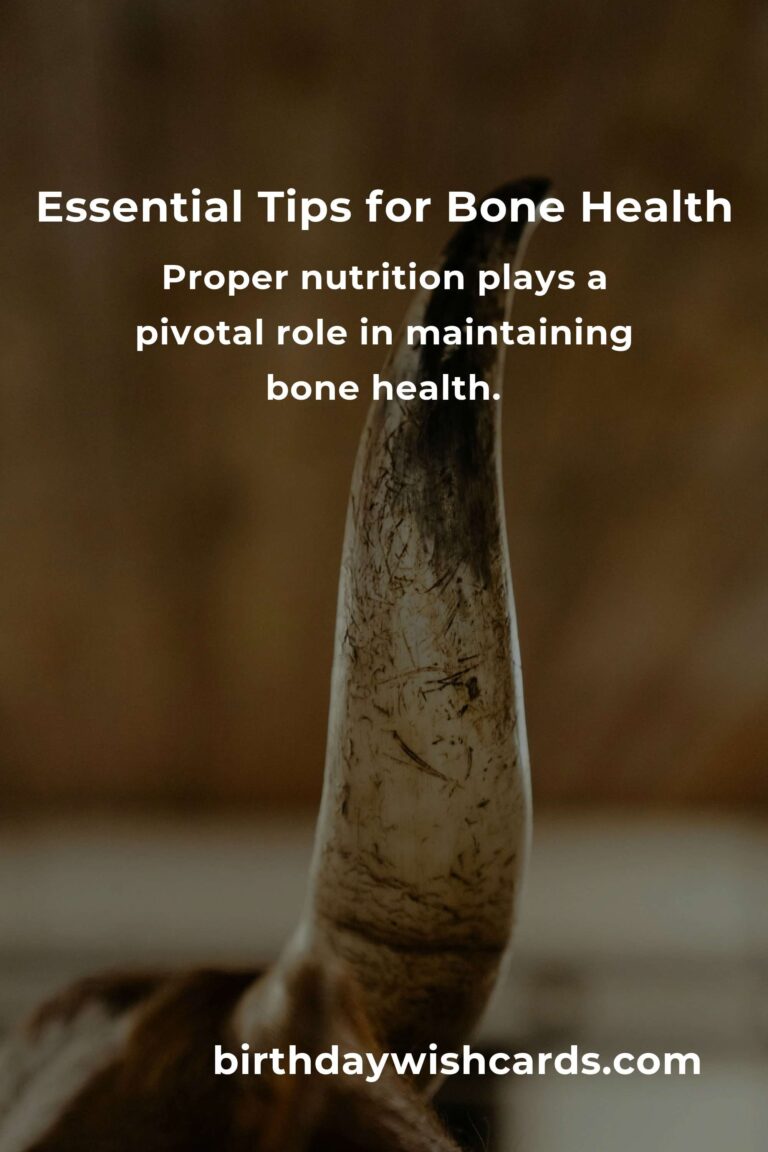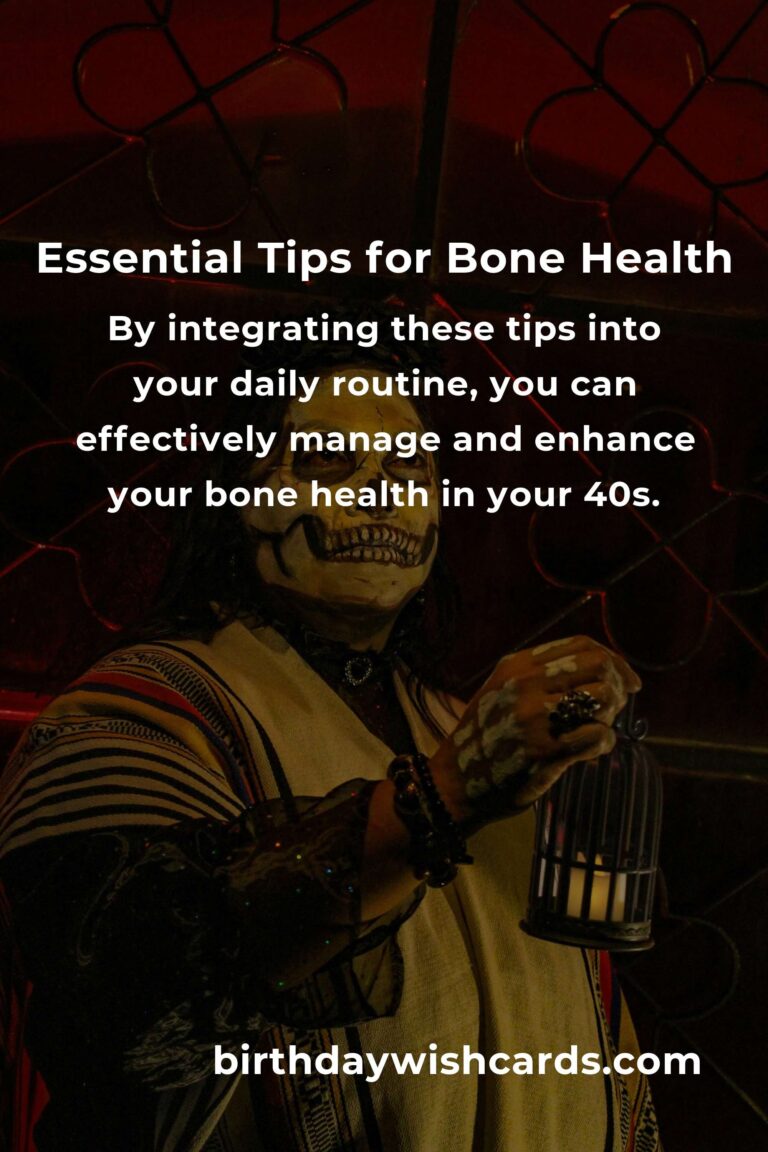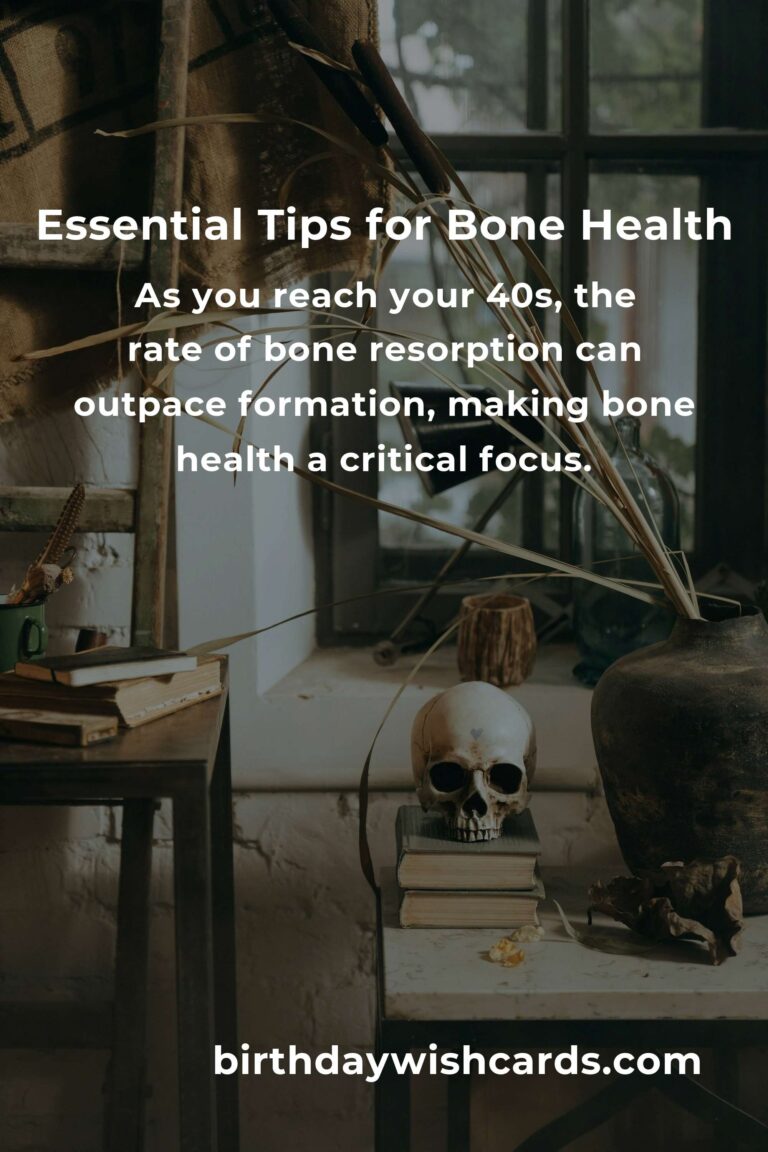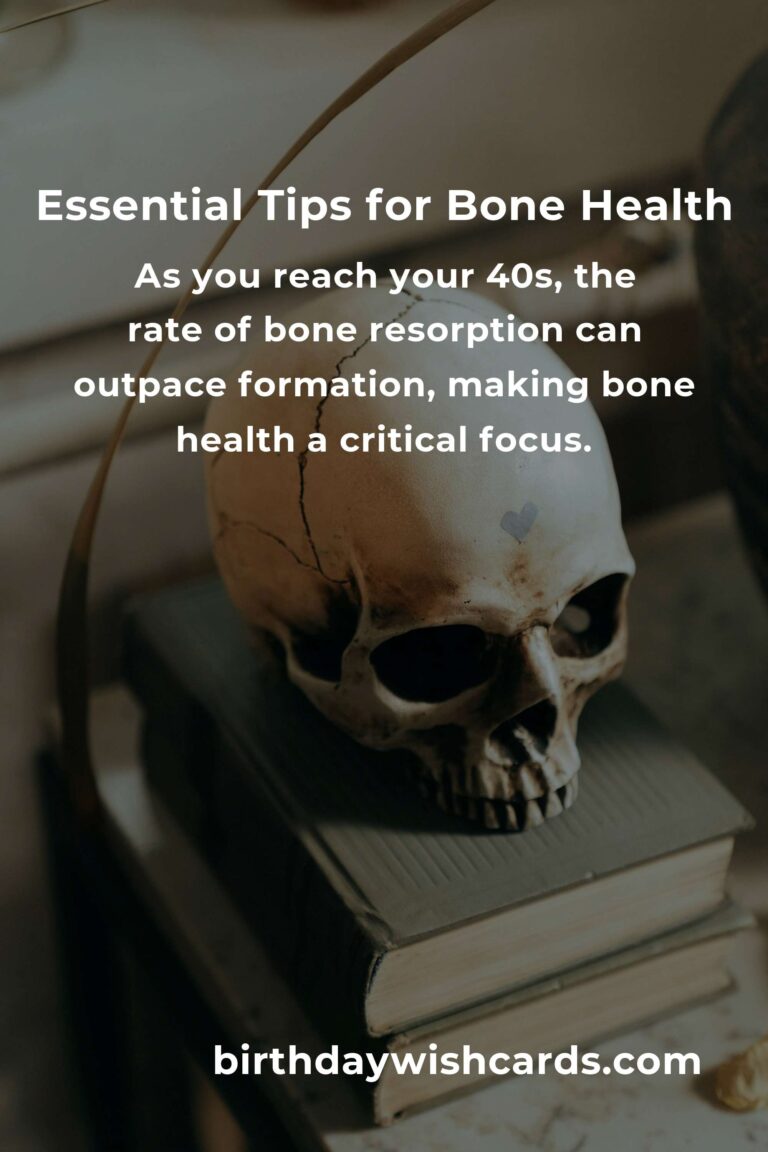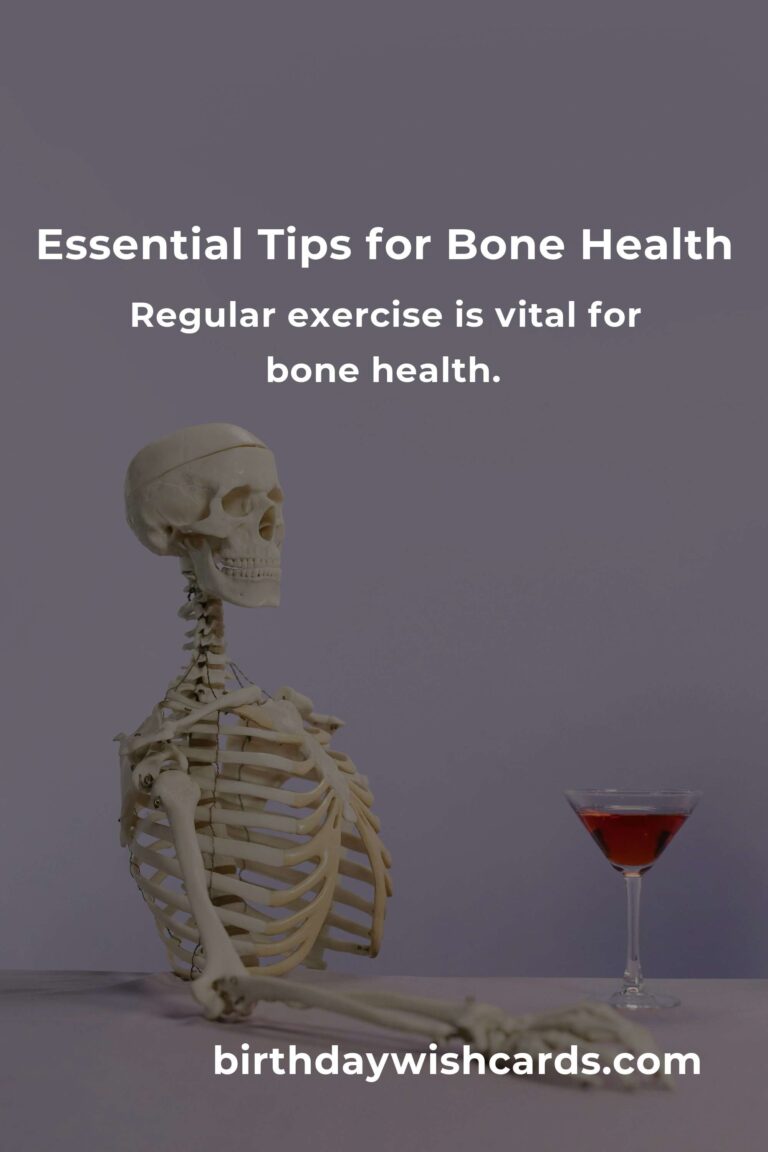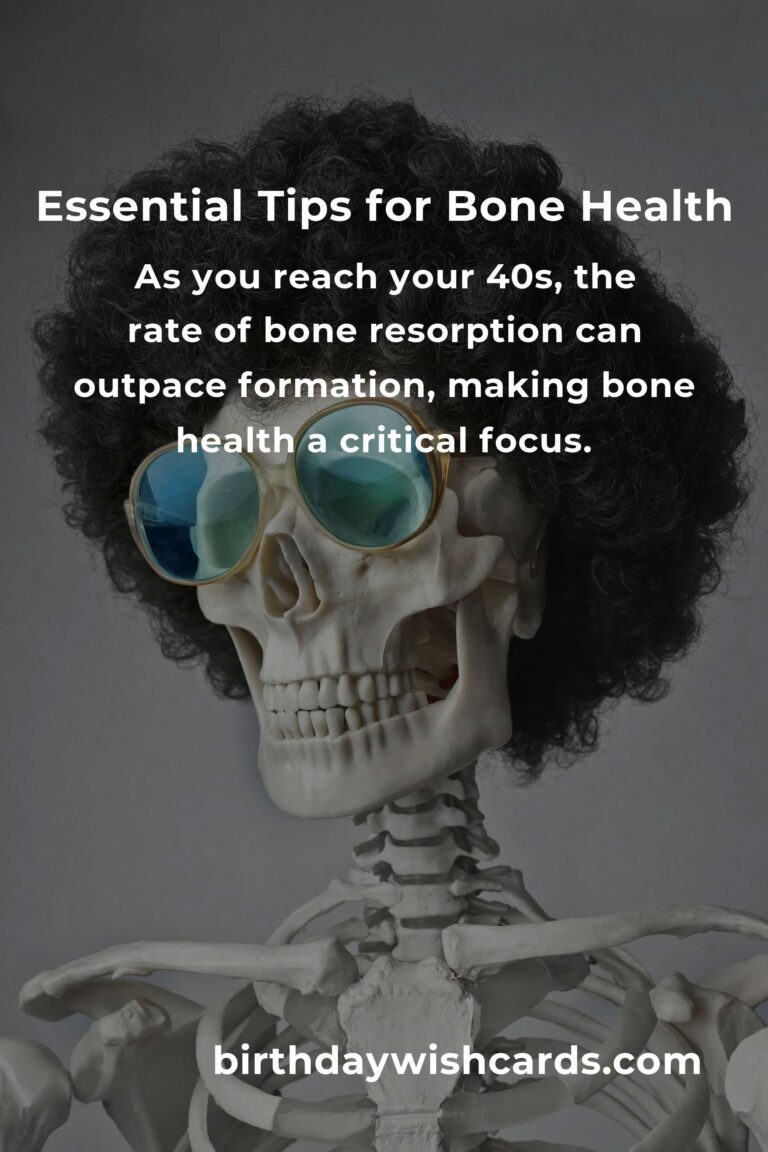
As we age, maintaining strong and healthy bones becomes increasingly important. In your 40s, bone density can begin to decline, leading to an increased risk of fractures and osteoporosis. However, by taking proactive steps, you can significantly enhance your bone health and overall wellbeing.
Understanding Bone Health
Bones are living tissues that continuously break down and rebuild. This dynamic process is crucial for maintaining bone strength. As you reach your 40s, the rate of bone resorption can outpace formation, making bone health a critical focus.
Diet and Nutrition
Proper nutrition plays a pivotal role in maintaining bone health. Here are some dietary tips to consider:
1. Calcium-Rich Foods: Incorporate dairy products, leafy greens, and fortified foods into your diet.
2. Vitamin D: Ensure adequate vitamin D intake through sunlight exposure and supplements if necessary.
3. Magnesium: Consume nuts, seeds, and whole grains to help with calcium absorption.
4. Protein: Include lean proteins in your diet to support bone structure.
5. Limit Caffeine and Alcohol: Excessive consumption can interfere with calcium absorption.
Exercise and Physical Activity
Regular exercise is vital for bone health. Consider the following activities:
6. Weight-Bearing Exercises: Engage in activities like walking, jogging, or dancing to strengthen bones.
7. Strength Training: Incorporate resistance exercises to increase bone density.
8. Flexibility and Balance: Practice yoga or tai chi to improve balance and prevent falls.
9. Regular Activity: Aim for at least 150 minutes of moderate-intensity exercise per week.
Lifestyle Changes
Making certain lifestyle adjustments can further support bone health:
10. Quit Smoking: Smoking can reduce bone mass and increase fracture risk.
11. Maintain a Healthy Weight: Being underweight or overweight can negatively impact bone health.
12. Limit Stress: Chronic stress can lead to hormonal changes that weaken bones.
13. Get Enough Sleep: Quality sleep is essential for bone repair and regeneration.
Supplements and Medications
Consult with your healthcare provider about supplements and medications that may benefit your bone health:
14. Calcium and Vitamin D Supplements: These are commonly recommended for bone health.
15. Prescription Medications: Certain medications can help prevent bone loss in high-risk individuals.
Regular Health Check-Ups
Monitoring your bone health is crucial for early intervention:
16. Bone Density Tests: Regular screenings can help track bone health.
17. Consult Healthcare Professionals: Work with your doctor to develop a personalized bone health plan.
Conclusion
By integrating these tips into your daily routine, you can effectively manage and enhance your bone health in your 40s. Prioritizing bone health not only reduces the risk of fractures and osteoporosis but also improves your overall quality of life.
As you reach your 40s, the rate of bone resorption can outpace formation, making bone health a critical focus.
Proper nutrition plays a pivotal role in maintaining bone health.
Regular exercise is vital for bone health.
Making certain lifestyle adjustments can further support bone health.
By integrating these tips into your daily routine, you can effectively manage and enhance your bone health in your 40s.
#BoneHealth #HealthyAging #Nutrition #Exercise #Lifestyle


